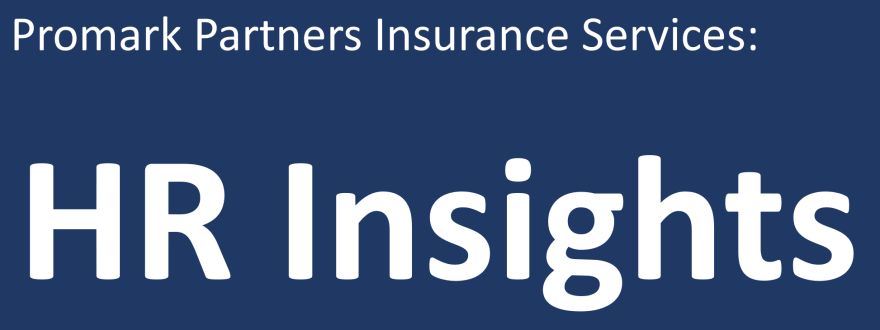
via The Travelers Indemnity Company
Over the past few years, employers faced a heightened Employment Practices Liability (EPL) risk environment with expanding exposures. Some of those exposure changes were driven by cultural shifts (sexual harassment and increasing verdicts); some were driven by legislation (biometric information claims); and some were driven by the pandemic. All of these issues have contributed to create a challenging environment for employers.
1: COVID-19
- By January 2021, the plaintiffs’ bar had filed over 1200 COVID-19-related employment lawsuits. The majority of lawsuits alleged disability discrimination and retaliation. Concerning is that the number of lawsuits filed has gradually increased each month since the pandemic’s inception.
- The U.S. unemployment rate spiked from 3.5% in March 2020 to 14.7% in April 2020. Although the rate has settled closer to 8% in more recent months, it remains double the rate in 2019. Terminated employees are more likely to bring claims.
- Claim Scenarios:
- An employee of an accounting firm requests permission to continue to work from home because her asthma places her in a heightened risk category if she contracts COVID-19. The employer denies the request and requires her to return to the office. The employee subsequently brings a lawsuit alleging that her employer’s failure to accommodate her disability violates the Americans with Disabilities Act.
- A retail worker complains about a lack of safety equipment in the store. In particular, the employee complains he is not provided with face masks, there is no plastic shield at the register to limit exposure from customers and hand sanitizer is not available consistently. The employee is subsequently terminated and brings a claim for retaliation.
2: SEXUAL HARASSMENT
- At the end of 2017, the #MeToo movement gave national attention to the prevalence of sexual harassment in the workplace and provided a platform for victims of sexual harassment to come forward. In the wake of #MeToo, sexual harassment claims increased. The national attention of the movement also altered the legal environment surrounding sexual harassment which made these claims resolve at higher costs. Industry wide, the total monetary benefits awarded to sexual harassment victims increased 68% from 2016 to 2019, and our experience with Travelers’ claims has been similar.
3: MEDIAN EMPLOYMENT PRACTICES LIABILITY AWARDS
- The median employment verdict has more than doubled over the course of the last five years.
- For the last three years, plaintiffs have prevailed on almost half of employment cases tried.
4: RETALIATION
- Retaliation was alleged in over 53% of EEOC charges filed in 2019. Since 2003, the percentage of charges alleging retaliation has increased each year. Retaliation claims are often difficult to defend. Even if the underlying complaint of discrimination or wrongdoing has no merit, the claimant can still prevail on the retaliation allegations.
5: BIPA
- The Illinois Biometric Information Privacy Act (“BIPA”) regulates the collection, storage, destruction, disclosure, sale, lease and trade of biometric data, such as finger, hand, voice, facial and retinal characteristics. Over 200 lawsuits alleging violations of BIPA were filed in 2019, and the number of lawsuits filed in 2020 is on track to exceed 2019 filings. The vast majority of these claims have been brought as class actions by employees regarding the collection of their fingerprint scans for time tracking purposes.
6: U.S. SUPREME COURT LGBTQ DECISION
- In June of 2020, the Supreme Court ruled that Title VII of the 1964 Civil Rights Act protects employees from discrimination based on sexual orientation and gender identity.
- While 28 states already have statutes affording such protections, this is new law in the other 22 states, which may result in additional claims alleging employment discrimination based on gender identity and sexual orientation. The EEOC saw a 32% increase in such charges between 2015 and 2019.
- Travelers Risk Management Plus+ Online®, a robust website that delivers helpful risk management guidance to Travelers EPL policyholders at no additional cost. Resources include access to various training modules, including state-mandated sexual harassment training. Access also includes numerous COVID-19 resources, such as a training session titled Smarter, Better Prevention of Virus and Bacteria Transmission in the Workplace, as well as articles, podcasts and sample workplace policies.
- An EPL Help Line, where an attorney specializing in employment law is available to provide quick and practical risk management guidance to Travelers EPL policyholders at no additional cost.
Notes:
- https://www.jacksonlewis.com/covid19-litwatch?intIaContactId=g6TJQpk9gPgUXw7ICkcuoQ%3d%3d&intExternalSystemId=1
- https://www.eeoc.gov/statistics/charges-alleging-sex-based-harassment-charges-filed-eeoc-fy-2010-fy-2019
- Employment Practice Liability: Jury Award Trends and Statistics; 2020 Edition
- https://www.eeoc.gov/statistics/charge-statistics-charges-filed-eeoc-fy-1997-through-fy-2019
- Biometric Information Privacy Act Litigation Matrix by Ankura; 8/31/2020
- https://www.eeoc.gov/statistics/lgbt-based-sex-discrimination-charges
- Assistance is not intended to replace your company’s need to hire employment counsel to assist in making specific personnel decisions and in implementing policies and procedures. Assistance provided exclusively to EPL policyholders.
Travelers Casualty and Surety Company of America and its property casualty affiliates. One Tower Square, Hartford, CT 06183
This publication is for general informational purposes only. It is not intended as, nor does it constitute legal or professional advice, not nor is it an endorsement of any source cited or information provided. This information does not amend, or otherwise affect, the terms, conditions or coverages of any insurance policy issued by Travelers. Participants should consult source material for more detail. Travelers disclaims all warranties whatsoever.
© 2021 The Travelers Indemnity Company. All rights reserved. Travelers and the Travelers Umbrella logo are registered trademarks of The Travelers Indemnity Company in the U.S. and other countries. CP-9585 New 2-21





